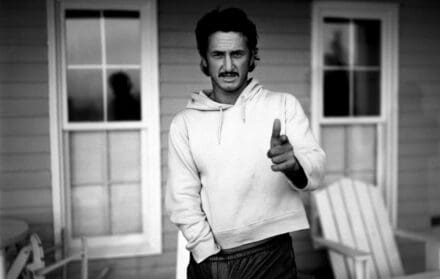
The secret life of a Mayfair croupier
What keeps casinos turning: an exacting world of cards, coins and cheating
There’s a rich seam of gambling in British history. As a vice, Henry VIII’s love for it was nearly as all-consuming as his passion for marriage and divorce. After getting fed up with his army frittering away their time punting, he outlawed it – except for himself of course. From then on it became a pastime of the landed gentry, and, to this day, in some London circles such as private clubs, it retains a regal connotation.
It wasn’t until the 17th century that it became an avenue for the middle class to approach power. Sir Thomas Neale served as groom porter to both Charles II and William III, and played the role of croupier to the kings, supervising all gambling in the royal residences. Along with his many other accomplishments, he was renowned for creating fair dice, cards and tables and managing disputes between players.
Since the Betting and Gaming Act came into effect in 1961, gambling has returned to the realm of the layman, yet it hasn’t lost its aspirational appeal in Mayfair. The Clermont Club was the first casino to be licensed and immediately attracted luminaries including Ian Fleming, Roger Moore, Peter Sellers and Princess Margaret.

While Coral, Ladbrokes and Paddy Power populate almost every high street, W1 remains one of the world’s most interesting places to roll the dice. But what of the croupiers? Many feel that Mayfair is the ultimate destination for those working in the trade.
Jamie Leigh Cummins works at the Park Lane Club and won the National Casino Forum’s UK Dealer of the Year award earlier this year, at the tender age of 27. At 18 he was studying mathematics with the intention of becoming a teacher, but was side-tracked when a friend suggested that he take a stab as a croupier at the Genting Casino. After a six-week training course, he was hooked.
“There’s a very different cross-section of people at the tables,” Cummins notes. “Outside London, most customers are local, whereas at London casinos they come from all over the world. The stakes are higher; there’s more action.”
Matthew Hillier also joined the trade quite early on, working in a casino in Leicester Square before coming to an open day at The Ritz Club. He earned the position after a table test and interview, and has worked there for the past five years. “If you enjoy a bit of mental arithmetic and the social aspect, but don’t mind the unsociable hours, it’s not a bad job to be in,” he says.
He echoes Cummins on the subject of London. “It’s definitely an international audience. At The Ritz Club we have a wealthier customer base than some other clubs, and our customers could be from the Middle East, China or anywhere else in the world.”
Many feel that Mayfair is the ultimate destination for those working in the trade
However, being a croupier isn’t all fun and laughs. Dealing with high-pressure, big money games can take a toll on the body, so it’s important to stay fit. “When you have a really busy shift and you’re on your feet the whole time, you have to concentrate really hard to keep an eye on everything that’s going on,” Hillier continues.
Cummins adds: “some days, it can be very quiet and you might get half a dozen breaks in an eight-hour shift, but on other nights you might only get one break. I always try to stay relaxed because that means the customer relaxes too and enjoys the experience.” Keeping track of everything often requires the mind of a mathematician. As croupiers progress in the business and gain more responsibility, they often have to manage several different tables. Beyond that, the games can be mind-bogglingly baroque.

Hillier’s most difficult experience has been fielding multiple full-complete bets on roulette. “Adding up numerous bets all at different odds and in different denominations that can go into the hundreds of thousands or even millions can be quite challenging,” he describes.
Films like Croupier, which launched Clive Owen’s career, portray a nefarious world in which casino staff must constantly be on guard against cheating. However, in real life, that doesn’t appear to be quite the case. State-of-the-art technology and perpetual 24-hour surveillance help safeguard against any late bets, and in the higher-end casinos there is often a supervisor at every table to observe the situation if the croupier’s attention is occupied elsewhere.
Viv Ross, compliance manager at Caesars UK, notes that it does happen, but only from time to time. “Cheating is not a widespread problem in casinos and only involves a tiny percentage of our customers.” There are three major types of cheating that take place. Push bets occur when a bet comes a fraction too late, mainly at the roulette table. “If a dealer thinks a push bet has been placed, they will refuse to pay out,” explains Ross. “The customer can dispute this, which will lead to further discussions, but 99 times out of 100 the customer will know they’re in the wrong and won’t dispute it.”
When two players are working in tandem and both have mediocre hands, they sometimes swap cards. This can be monitored over CCTV – and if it’s a serious amount of money, the casino might go to the police and ask them to prosecute as it’s a criminal offence. Ross has been forced to do this on several occasions.

Finally, edge sorting is when a player identifies a slightly different pattern on the back of the card, normally if the marking has not been printed exactly square and goes right to the edge. They then use the information to their advantage by persuading the dealer to rotate the cards in their favour.
“A Mayfair casino recently won a long legal battle against a poker player after refusing to pay out £7.7m because he had been using this technique playing Punto Banco [a version of baccarat],” says Ross. Discretion is of paramount importance. This applies to well-known guests who visit or frequent the premises, none of whom Cummins or Hillier agree to name. But it also applies to the techniques employed to catch a thief.
“There are lots of procedures in place to maintain the integrity of all our games but I can’t tell you everything, as it would rather defeat the purpose,” says Hillier. There is also a host of rules and regulations in place to maintain order. “We are not allowed to go into other casinos in the area so there’s no temptation to gossip with staff at other places,” says Cummins. “We keep everything within the club.”
Sadly, the role of croupier isn’t quite as freewheeling as it was in the day of Sir Thomas Neale.









